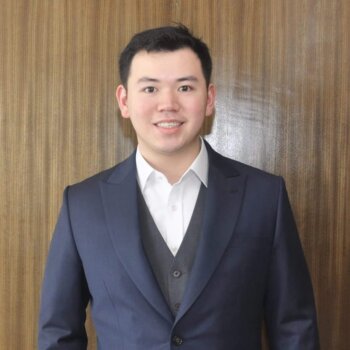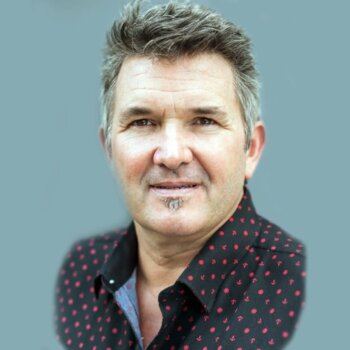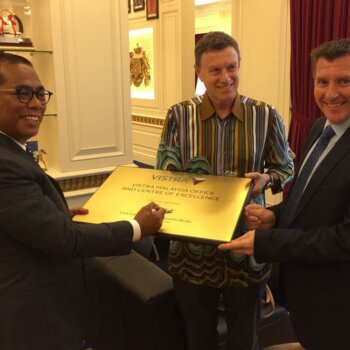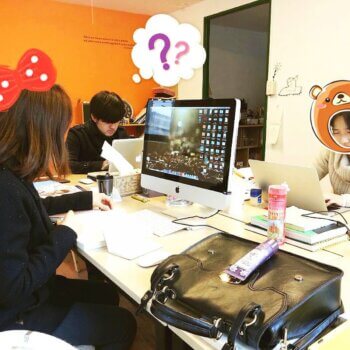During a conversation with a friend, Travis, got an idea to make the banner creation process easier. From that idea, he went on to form a successful business.
What’s your story?
My name is Travis, co-founder of Adzymic. I like to solve problems. Whether it’s a simulation program when I was serving in the Republic of Singapore Navy, an online form application for Hewlett Packard, or virtual stock trading platform as a co-founder of a failed startup many years ago.
Adzymic has been my personal project for past 1-2 years while working as a marketer in SAP. It all started during a discussion with a friend; an idea came to me to make the banner creation process as easy as sharing a post on social media and make the format simple and interactive. This idea stuck with me for weeks and the only way to get over it was to build it. And then I met Ken, an advertising veteran who was looking for something to sell, so we teamed up and formed Adzymic. For past year, the business has been doing great and it reached a stage where I had to quit my job to help expand the business.
What excites you most about your industry?
I have been in Digital Marketing space for 14 years and have seen lots of changes in how marketers buy media, from the old traditional days of working with media resellers to the adoption of programmatic buying, to the domination of Facebook and Google. What excites me is the sheer size of technology investments that are being made into the advertising technology space, and the continued shift of ads spent into Digital, and yet at the same time, there are still many opportunities for startups like us to improve in the process, especially in creative management.
What’s your connection to Asia?
I was born and grew up in Singapore, in typical Singaporean family. Coincidentally, my current office, located at Kim Yan Road, used to be the old school compound (Nan Chiau Primary) where my brother and sister studied.
Being in Singapore has given me the opportunity to handle regional roles as a marketer. That gave me the exposure to different parts of Asia. I particularly love China and lived in Shanghai for a few years. For now, my start-up is expanding into different markets in Asia and I love the challenges and opportunities ahead in the region.
Favourite city in Asia for business and why?
Singapore is my favourite city to do business, especially in advertising industry. There is just so much going on here. Another favourite is Ho Chi Minh City. Love the vibes, huge market potential, great food, and culture. It reminds me of Shanghai 10 years ago and the best part – it’s less than 2 hours from Singapore.
What’s the best piece of advice you ever received?
A CEO of a company once told me “When there is confusion, there is money to be made”. Not really advice, but this quote really did speak some truth.
Who inspires you?
My uncle. He owned a dessert stall in Albert Street Food Centre and dedicated his life to his craftsmanship to enable his four kids to go to college. I remembered when I was a kid, he would reach home past midnight and would not turn off the lights until 3 am because he would spend a few hours reading and checking his children’s homework.
What have you just learnt recently that blew you away?
Not sure if this is fake news but someone just told me that Singapore is ready for Space Tourism and it’s in the plan to build a space launcher that will extend out to the sea near Changi!
If you had your time again, what would you do differently?
Nothing.
How do you unwind?
I like watching comedy series, documentaries on Netflix, playing “Favourite Coffee House” playlist on Spotify, and cycling with a group of friends along East Coast and Changi.
Favourite Asian destination for relaxation? Why?
I do not have a fixed Asian destination for relaxation. Probably the best for relaxation for me is to have a bowl of Prawn Mee and a cup of Kopi-Siew Dai at my favourite Upper Boon Keng Food Centre.
Everyone in business should read this book:
Zero to One by Peter Thiel. There are lots of great quotes in this book.
“Customers won’t care about any particular technology unless it solves a particular problem in a superior way. And if you can’t monopolize a unique solution for a small market, you’ll be stuck with vicious competition.”
― Peter Thiel, Zero to One: Notes on Startups, or How to Build the Future
Shameless plug for your business:
Get ready for some ad-tech jargons! Adzymic is an ad-tech startup headquartered in Singapore and has operation across Malaysia, Indonesia, and Vietnam. Our next generation Dynamic Creative Management Platform transforms display advertising into high performing native advertising and performance marketing engine.
Adzymic’s proprietary Smart Tag technology allows generation, optimisation, and personalisation of ads at scale, and thereby helps brands, agencies and publishers simplify their creative management process and improve their display advertising performance.
How can people connect with you?
Via https://www.linkedin.com/in/scenz or drop me an email at travis(a)adzymic.co
Twitter handle?
@scenz
—
This interview is part of the ‘Callum Connect’ series of more than 500 interviews
Callum Laing is an entrepreneur and investor based in Singapore. He has previously started,
built and sold half a dozen businesses and is now a Partner at Unity-Group Private Equity and Co-Founder of The Marketing Group PLC. He is the author two best selling books ‘Progressive Partnerships’ and ‘Agglomerate’.
Connect with Callum here:
twitter.com/laingcallum
linkedin.com/in/callumlaing
Download free copies of his books here: www.callumlaing.com
































